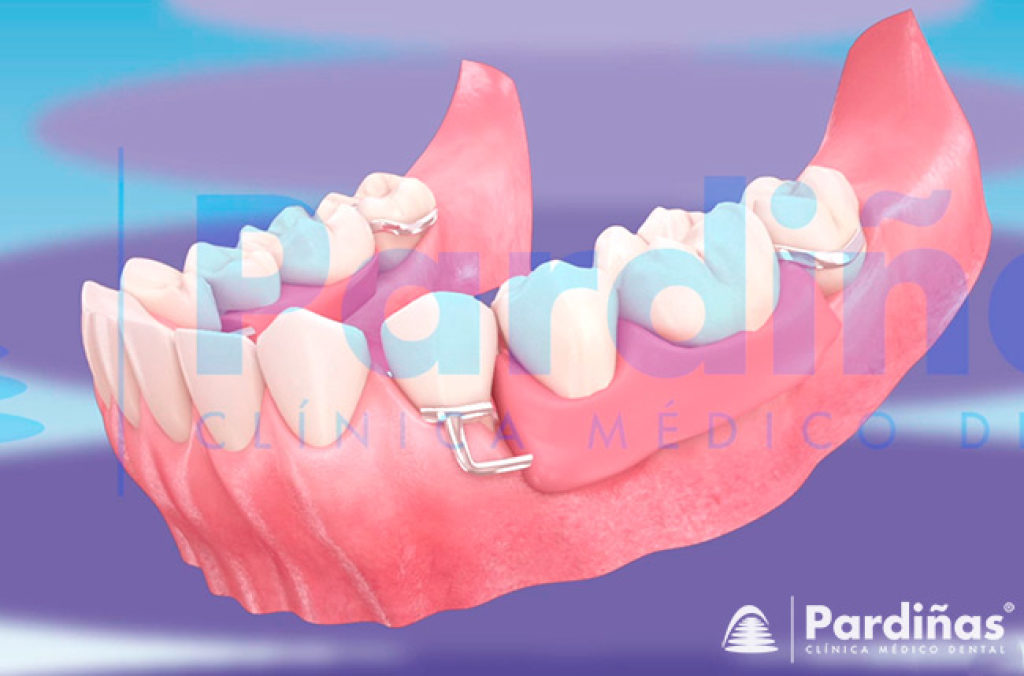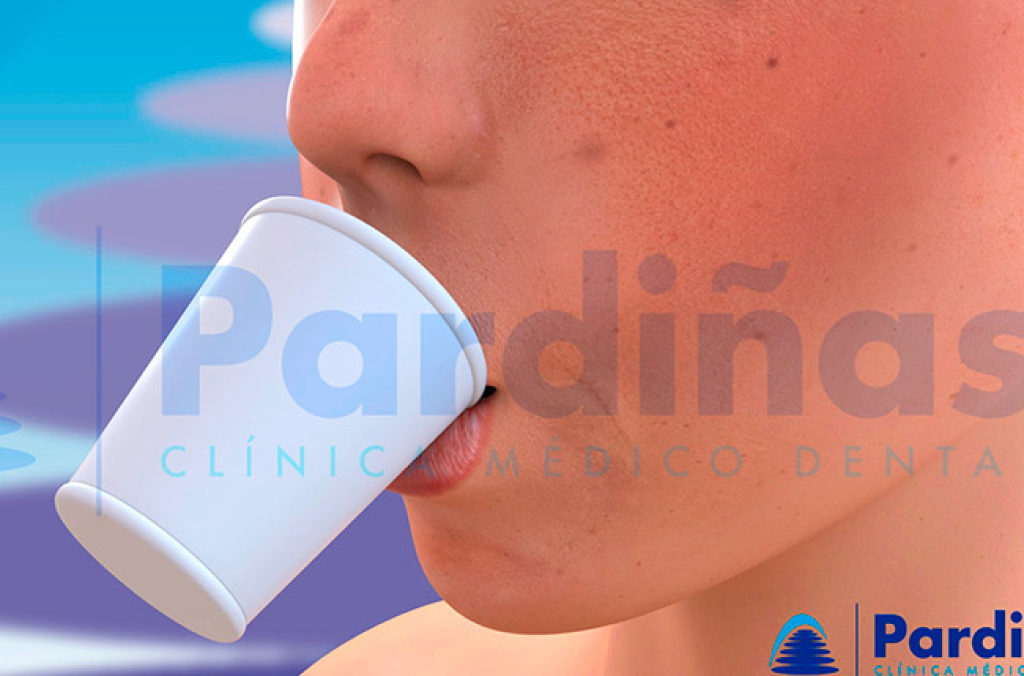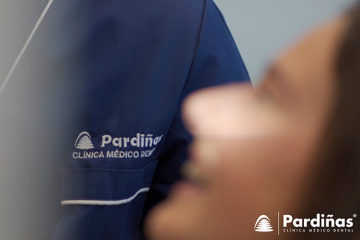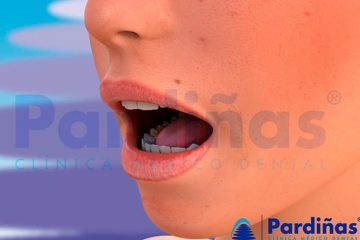Gum bleeding is another of the most common dental conditions. A small and very sporadic bleeding should not be a reason for concern, but if it occurs frequently or in excessive amounts, it is recommended to make an appointment with a doctor. We talk about the causes, prevention and treatment of bleeding gums in this post.
-
1) Causes of bleeding gums
- 1a) Periodontal disease - The main cause of bleeding gums
- 1b) Dental hygiene
- 1c) Bleeding gums during pregnancy
- 1d) Anticoagulants
- 1e) Lack of vitamins
- 1f) Other reasons for bleeding gums
- 2) How to prevent bleeding gums
- 2a) Improve your dental hygiene
- 2b) Do you wear dentures? Make sure it is well adjusted
- 2c) Diet, an ally against bleeding gums
- 2d) Don't smoke and drink as little alcohol as possible
- 2e) Pregnant? Visit the dentist more often
- 3) My gums bleed, what can I do?
1) Causes of bleeding gums
According to the NCI (National Cancer Institute), the gums are the upper and lower tissue that surrounds the base of the teeth. Under normal conditions, these are tight, pink in color, and do not bleed. If they do, this could be for a number of reasons, although not all are equally worrisome:
1a) Periodontal disease - The main cause of bleeding gums
In some cases, bleeding gums can be a sign of gingivitis, the early stage of periodontal disease, caused by the buildup of plaque bacteria around the teeth. It can be treated if detected early, otherwise it could lead to periodontitis, where the gums, bone and periodontal ligament can be damaged. Periodontal disease can not only cause bleeding gums or affect the tissues of the mouth, but it is also closely related to systemic diseases such as diabetes, cardiovascular and respiratory diseases. If this condition is left untreated, it can lead to tooth loss, being the first cause of this problem in adults.

1b) Dental hygiene
Hygiene is essential for oral health as we have seen in other articles. But, if it is done with an inadequate technique, with a brush that is too hard and/or with excessive pressure, it can cause our gums to bleed. This bleeding can also be a result of flossing, although this usually only occurs when you first start using it and tends to disappear within a few days. If this is not the case, it is advisable to consult the dentist, since you may be using it incorrectly or have a gum problem. Healthy gums should not bleed under normal circumstances such as brushing or flossing.

1c) Bleeding gums during pregnancy
Some pregnant women develop inflammation of the gums caused by hormonal changes that can cause swelling, sensitivity and, with all this, bleeding gums. This usually occurs during the second and third trimester of pregnancy.

1d) Anticoagulants
If you are under anticoagulant treatment, this type of medication can make the gums bleed more easily. In the event that it occurs, it is recommended to consult your doctor to verify that the medication and dose are appropriate.

1e) Lack of vitamins
Lack of vitamin K or vitamin C may be another cause of bleeding gums, as the University of Washington School of Dentistry has found in this study.

1f) Other reasons for bleeding gums
In addition to those described, the gums can also bleed from certain viruses, fungi, injuries, ill-fitting prostheses or appliances, oral infections, bleeding disorders, or leukemia, a type of blood cancer. Nor does tobacco, alcohol, unhealthy diets, diabetes or crowded teeth help in this regard.

2) How to prevent bleeding gums
We are going to give some guidelines for its prevention once the different causes of bleeding gums have been presented and exposed. We insist that if the problem is mild and sporadic, there is no need to worry, but if it is something frequent, it is convenient to discuss it with the dentist.
2a) Improve your dental hygiene
The best way to avoid diseases and other problems related to oral health is to have good dental hygiene. Good hygiene involves brushing your teeth after each meal and doing it with a medium hard brush and a softer and more precise technique, adding flossing at least once a day.
2b) Do you wear dentures? Make sure it is well adjusted
A poorly adapted prosthesis or orthodontics can lead to bleeding gums, so it is essential to ensure its correct placement. It is recommended to go to the dentist to adjust it properly in case of perceiving any anomaly.

2c) Diet, an ally against bleeding gums
Eating a healthy and balanced diet is essential for overall health, but it can also help prevent bleeding gums. It is recommended to control the consumption of carbohydrates and avoid snacking between meals, since it is common for us not to brush our teeth after doing so.

2d) Don't smoke and drink as little alcohol as possible
The consequences that tobacco and alcohol have on our bodies are already well known, but these substances are also very harmful to oral health. In addition, tobacco constricts blood vessels, so it can mask bleeding gums, the main warning sign of the development of periodontal disease.

2e) Pregnant? Visit the dentist more often
We already said that gingivitis is common during the second half of pregnancy, so in this period it is especially important to visit the dentist regularly. Similarly, extreme oral hygiene is recommended.

3) My gums bleed, what can I do?
If you have frequent and excessive bleeding gums, the problem will need to be treated. As always, the intervention will depend on the origin and seriousness of the matter:
3a) Treat periodontal disease
If your gums bleed due to gingivitis or periodontitis, the solution is to visit the dentist, who will carry out a specific treatment for each phase of periodontal disease. This procedure generally involves periodontal prophylaxis, scaling and/or root planing (a specific type of cleaning for patients with these symptoms). It may become necessary to perform periodontal surgery in the most advanced cases.
3b) Choose the right mouthwash for bleeding gums
It is important that you avoid mouthwashes that contain alcohol if you suffer from this ailment, as they can aggravate your situation. If you need recommendations on which mouthwash to use, your trusted dentist can recommend the most suitable one for you.

3c) Look for alternatives to the medications you take
It is advisable to discuss with your family doctor to find an alternative if the use of anticoagulant medications or of another type is leading to excessive bleeding. You should never stop treatment or seek another option on your own.

3d) Vitamins can help you with bleeding gums
We have already stated that a lack of vitamin C and/or K is related to gingival bleeding, so if this is your case, taking vitamin supplements may be advisable, as long as your doctor deems it appropriate.

3e) Applies pressure to the gum
If your gum is bleeding excessively, it is recommended to moisten a gauze pad in cold water and apply pressure directly to the gum. Aspirin should not be taken as it will increase bleeding. However, it is always advisable to go to the dentist as soon as possible in these cases.


